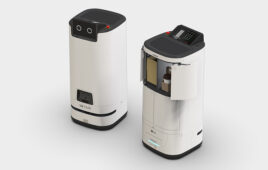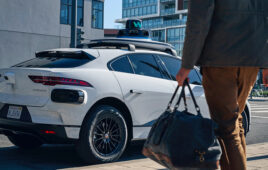|
Listen to this article
|

Several autonomous vehicle companies are based in California, including Cruise and Waymo. | Source: Waymo
California Sen. Dave Cortese last week withdrew Senate Bill (SB) 915 from consideration. SB 915 would have allowed local municipalities to restrict and tax autonomous vehicle (AV) companies, similar to how taxicab companies are regulated in the state.
“It’s good to see California lawmakers going back to the drawing board on autonomous vehicle policy,” said Chamber of Progress director of civic innovation policy Ruth Whittaker. “Autonomous vehicles have the power to save thousands of lives in California by eliminating drunk, distracted, and unsafe human driving. Over the past month, we’ve heard leaders from across the state raise concerns that this bill could derail progress on California’s roads.”
Currently, AVs are legislated by two statewide entities in California, the California Department of Motor Vehicles (DMV) and the California Public Utilities Commission (CPUC). Once an AV company has received all the proper permits from these two entities, it can run its robotaxi service in the state.
SB 915 would have required AV companies to obtain permits from every city and/or county they run their services in.
Had the bill passed, cities and counties could create a permitting program for the vehicles, establish vehicle caps and hours of service restrictions, and establish interoperability or override systems that first responders could access in emergencies. Each city and/or county would have also been able to levy service charges, fees, or assessments to the companies.
Additionally, SB 915 would have made it unlawful to operate an autonomous vehicle service without a valid permit issued by the local jurisdiction in which the service is substantially located.
Opponents of the bill said it would keep AV companies held up in legislative red tape, throttling their ability to grow and deploy their services. Proponents, on the other hand, say it gives power back to cities and counties, where legislation typically moves more quickly than in state-wide agencies.
Autonomous vehicle companies face additional scrutiny in California
While SB 915 has been dropped, it doesn’t mean the AV industry in California is completely in the clear. Earlier this year, the city of San Francisco filed a lawsuit against the CPUC to drastically reduce the number of robotaxis on the city’s roads
The lawsuit centers around the CPUC’s decision in August 2023 to grant both GM’s Cruise and Alphabet’s Waymo their final permits in the state (Cruise’s permits have since been revoked). These permits allowed the companies to charge for rides, expand the hours of operation and service area, and add as many robotaxis to their fleets as they wanted. The lawsuit is asking the CPUC to reconsider its decision and whether it was compliant with the law.
San Francisco city attorney David Chiu filed an administrative motion after the August decision in an attempt to delay Cruise and Waymo from ramping up operations and get another hearing with the CPUC. In December, the City Attorney’s office filed a lawsuit with the California Appellate Court to request the CPUC review its August decision and revoke Waymo’s permit.
The lawsuit also asks the CPUC to develop reporting requirements, safety benchmarks, and other public safety regulations to address incidents that have involved first responders, created traffic, and disrupted public transportation.
There are several autonomous vehicle companies based in California, including Cruise and Waymo.






Tell Us What You Think!